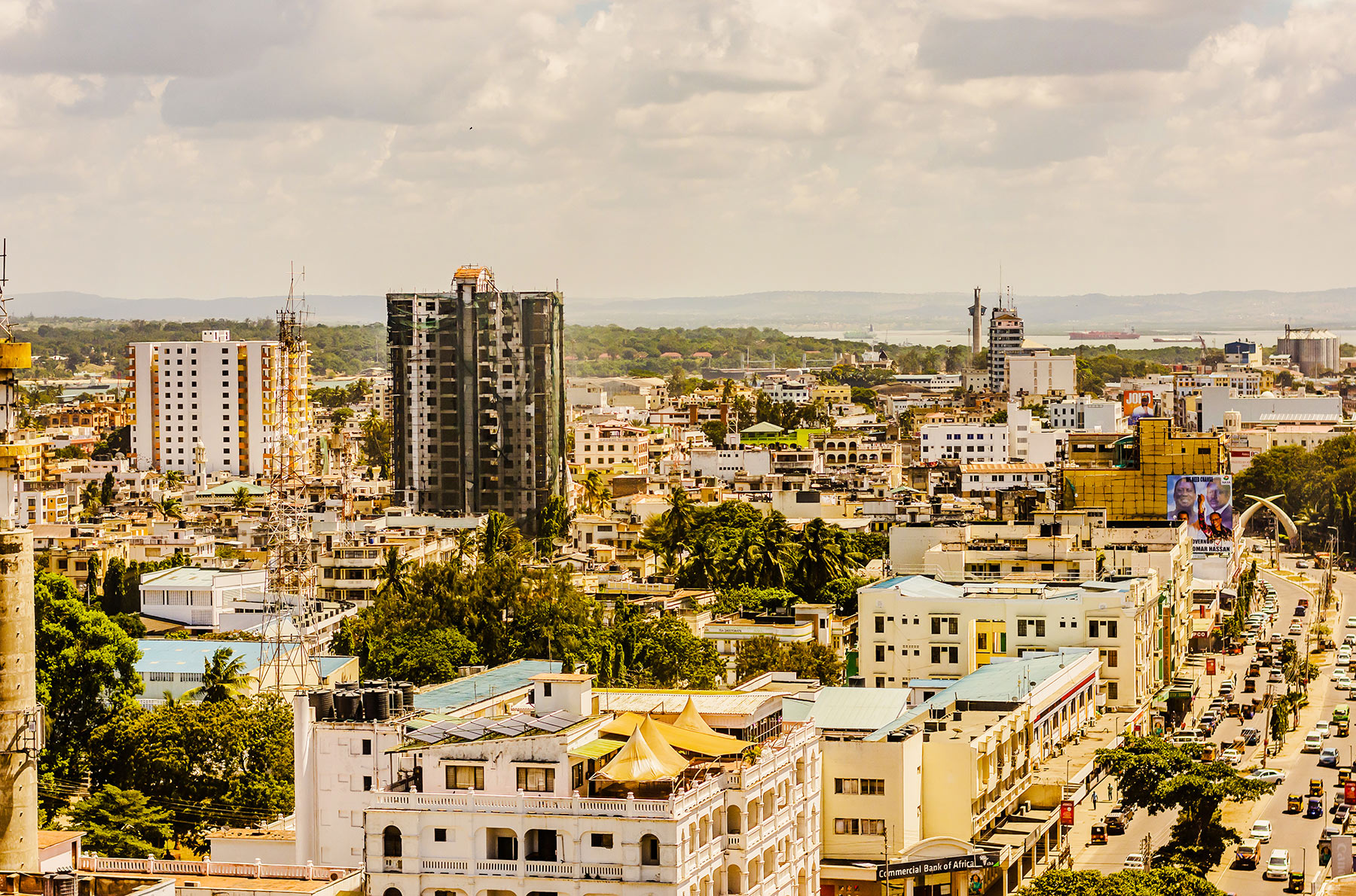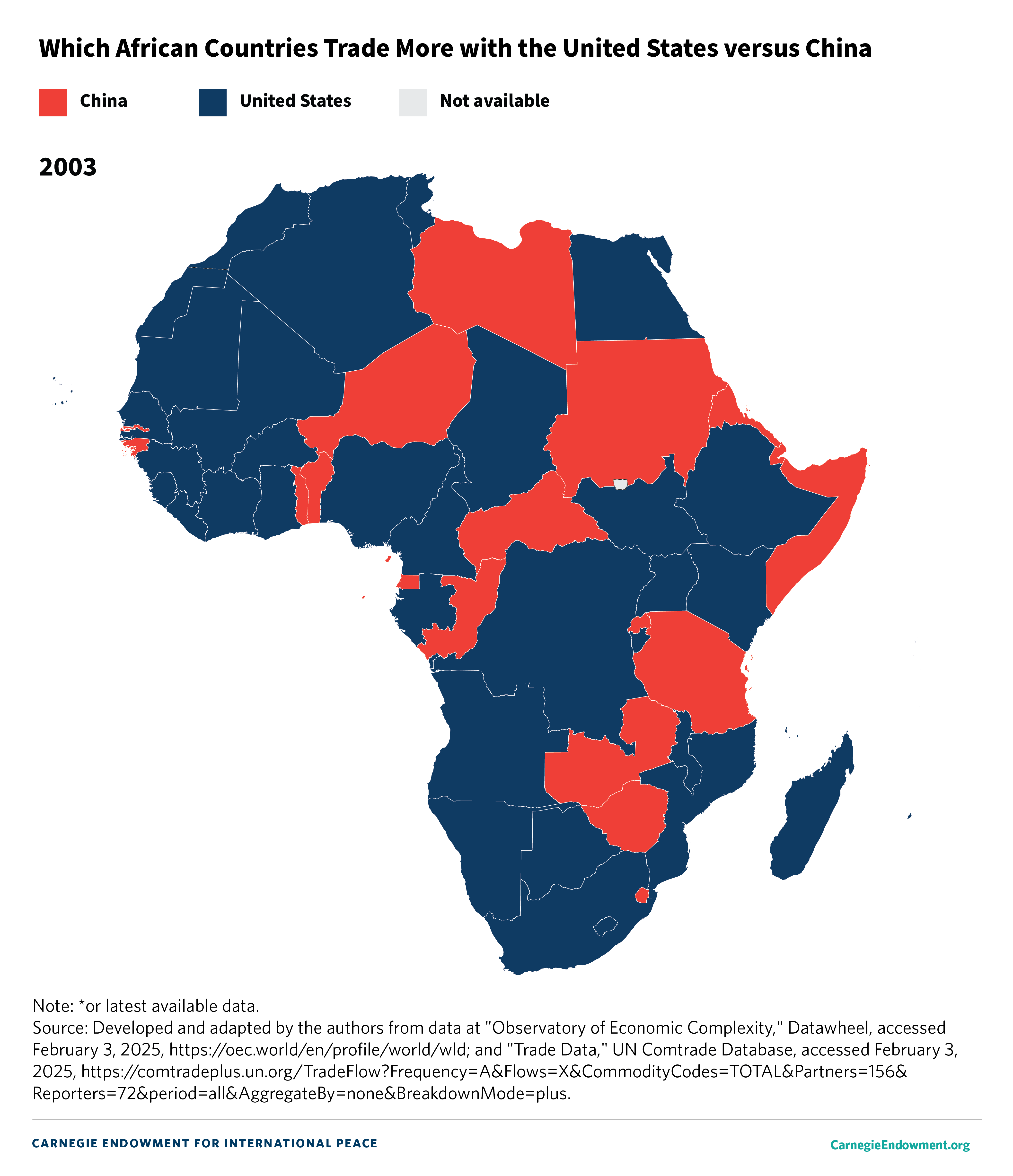
Should Africa Brace for Trump’s Tariffs?
It has only been two months since President Trump assumed office and yet his administration has been very active in overhauling America’s global trade relations.
March 2025
Dear friends,
It has only been two months since President Trump assumed office and yet his administration has been very active in overhauling America’s global trade relations. He has announced a variety of duties on imports from trade partners in Canada, Mexico, China and the European Union over the past couple of weeks. There might still be more announcements to come on April 2nd after the conclusion of the review of all U.S. trade agreements and programs by USTR.
Which raises the question, should the African continent also brace for wide-ranging tariffs on its exports to the U.S.? Will the African Growth and Opportunity Act (AGOA) have for survival if there is no certainty around the future of the prized U.S. Mexico Canada Agreement (USMCA)? Will African countries be permanently shut out of the U.S. market as America rethinks its approach to international trade? A recent hearing at the U.S. congress on “American Trade Negotiation Priorities” provides some insights on where things might be headed although policy announcements from the White House continue to be made at a dizzying pace. You may also want to check out my recent analysis of the first tranche of Trump’s executive orders.
Amidst this uncertainty, it is worth considering other elements of the wider global trading landscape for a bit. China is now Africa’s largest trade partner with two-way trade between the two reaching $292 billion in 2024, compared to the less than $80 billion for U.S.-Africa trade in the same period. The prominence of both the U.S. and China in Africa’s trade completely inverted within two decades. In our chart of the month below, we show the 20-year progression of trade relations between African countries, the U.S., and China. In 2003, as shown in the chart, China was the preferred trading partner over the U.S. for only 18 African countries (about 35 percent of the continent). Fast forward to 2023, solidifying itself as a manufacturing and trading behemoth, a whopping 52 African countries (97 percent of the continent) trade more with China than with America.
These numbers are likely to increase in favor of China in the coming years because in December 2024, the country began to allow duty-free access to the Chinese market for exports from the world’s least developed countries. Thus, with uncertainty about the future of the African Growth and Opportunity Act even as its September expiration looms, the U.S.-Africa trade relationship is more tenuous than it has ever been in this business-as-usual scenario. As Africa-China trade volumes will eclipse the numbers for U.S.-Africa, the competition between the two powers is playing out at the World Trade Organization with significant implications for the African continent, as nonresident scholar Kholofelo Kugler explains in a recent article. Overall, we are monitoring this space closely and so stay tuned for more analyses and dialogues on this front.
Another set of developments we are closely tracking in Washington D.C. involves appointments to key policy roles on Africa in the Trump administration. Semafor reports that efforts at appointing the Senior Director for Africa have fallen through for the third time. This follows a trend in which appointments for policy positions in other regions, including Asia and Latin America remain unfilled. And on a somewhat optimistic note, Secretary of Energy Chris Wright, recently declared that Washington wants to partner with African countries on the development of the continent’s energy sector. In his keynote remarks at the Powering Africa Summit, Secretary Wright mentioned his interest in Africa and previewed an approach to energy diplomacy that is not predicated on dictating terms or choices of energy technologies to the continent.
There are some interesting developments on U.S. engagement with Africa at a bilateral level. On one hand, there are reasons to be worried. The relationship with South Africa continues to deteriorate by the day, culminating in the expulsion of the country’s ambassador to the U.S., Ebrahim Rasool, earlier this month. Some members of the U.S. congress and advocacy groups are recommending Nigeria’s designation as a “Country of Particular Concern” for religious violence. With an embassy in Washington D.C. lacking a substantive ambassador for nearly two years now, Nigeria’s diplomatic mission, remains surprisingly rudderless, at this critical moment in history.
On the other hand, several African countries are being more proactive in trying to secure a “deal” with the Trump administration. Notably, the Democratic Republic of Congo has proposed a minerals-for-security agreement with the United States to help keep Rwandan rebels at bay. Nonresident scholar, Geraud Neema examines the viability of this DRC proposal in a recent article. Somalia also appears to have joined the fray, in offering the US “exclusive operational control” over strategic ports on the Gulf of Aden order to preempt any recognition by Washington of Somaliland.
In Africa Program news, fellow Jane Munga recently spoke at Brown University for an all-day conference on Democracy, Diplomacy, and Development in Africa. Her panel focused on Development and Innovation Trends from a Civil Society Perspective where she highlighted promising signs & trends in Africa’s digital transformation including connectivity expansion, mobile innovation, economic growth, and the harmonization of policies and strategies across the continent. Speaking on the existing challenges of the digital divide and infrastructure gaps, Dr. Munga pressed for a unified approach to governance and more inclusive conversations on emerging digital technologies.
I was at the World Bank’s Global Digital Summit where I moderated a panel on exploring the nexus of A.I. and energy. This session explored AI and digital platforms in the energy sector, such as using AI for mini grid planning and expanding energy access and emphasized reliable and affordable electricity as essential for powering digital infrastructure.
Next month, we are looking forward to the IMF and World Bank Spring Meetings as well as side events. Within an administration that takes an America-First approach to international relations, all eyes will be on U.S. multilateral engagements during the meetings. To stay updated, subscribe to our newsletter, follow us on LinkedIn, and follow us on X (formerly Twitter) at @AfricaCarnegie.
Sincerely,
Zainab Usman
Director, Carnegie Africa Program
Chart of the Month

Features
DeepSeek R1: Implications of a New AI Era for Africa
The Chinese AI model demonstrates that powerful AI can be developed affordably, paving the way for broader and more equitable AI adoption.
By Sylvester Quansah
Can the DRC Leverage U.S.-China Competition Over Critical Minerals for Peace?
The Democratic Republic of the Congo is offering the United States access to its mineral resources in an effort to ensure peace and stability in the country.
by Christian-Géraud Neema
Africa and the Great Power Competition at the World Trade Organization
The WTO has not been impervious to the frictions among the organization’s largest economies—the United States, the European Union, and China—which are also Africa’s largest bilateral trade partners.
by Kholofelo Kugler
DR Congo considers US access to its critical minerals in return for security guarantees
The Democratic Republic of Congo says it will not rule out giving the US access to its vast mineral wealth in return for security guarantees. Christian Geraud-Neema speaks with DW News about the geopolitical implications of this deal.
By DW News
Digital Public Infrastructure: A Practical Approach for Africa
Digital public infrastructure (DPI) has the potential to support Africa’s digital transformation, but there are crucial baselines that must be considered on the continent, including situating these systems within existing governance and digital frameworks.
By Diana Sang, Jane Munga, and Nanjira Sambuli
The Six Areas in Trump’s Executive Orders that Countries in Africa and the Global South Should Pay Attention to
Donald Trump’s flurry of executive orders presents perils and opportunities to Africa and the Global South. Understanding the new policy environment will be crucial for them to take advantage.
By Zainab Usman
Developments on Our Radar
US Energy Secretary says Washington ‘wants to partner with African countries’ [VOA]
Congo and Rwanda presidents call for east Congo ceasefire during Qatar sit-down [Reuters]
Canada Launches Its First Global Africa Strategy: A Partnership for Shared Prosperity and Security [Global Affairs Canada]
White House fails to appoint top Africa job for third time [Semafor]
US and Israel look to Africa for moving Palestinians uprooted from Gaza [AP News]
Professional Development Opportunities
Lecturer, Senior Lecturer, Reader in Economics at SOAS University of London [application]
Hyundai Motor Group Scholarship for African Candidates Masters and PhD Programs at SOAS [application]
Carnegie does not take institutional positions on public policy issues; the views represented herein are those of the author(s) and do not necessarily reflect the views of Carnegie, its staff, or its trustees.